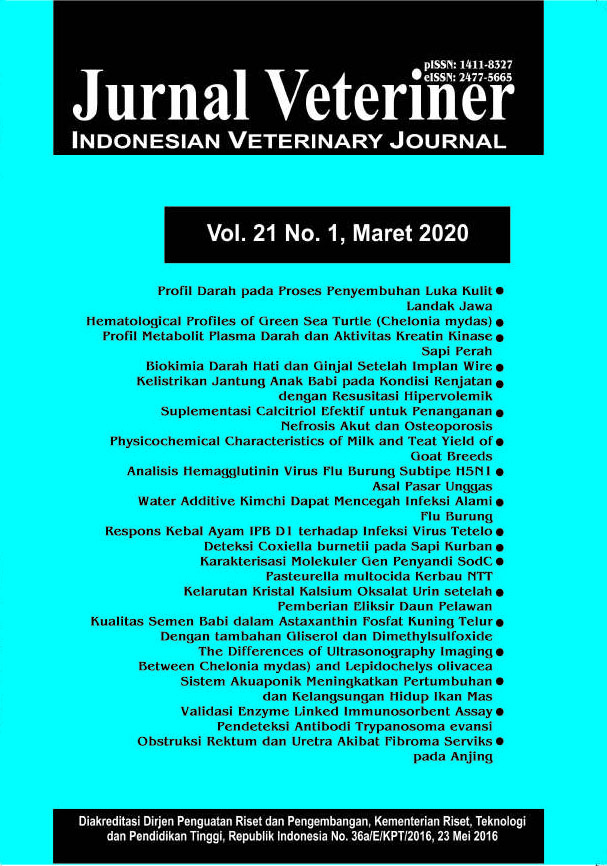Analisis Hemagglutinin Virus Flu Burung (Avian Influenza) Subtipe H5N1 Asal Pasar Unggas Hidup di Jakarta Timur 2014 (HEMAGGLUNIN ANALYSES OF AVIAN INFLUENZA VIRUSES SUBTYPE H5N1 ISOLATED FROM LIVE BIRD MARKETS IN EAST JAKARTA 2014)
Abstract
Hemagglutinin is a surface glycoprotein of the influenza virus encoded by segment 4, which has the main function to attach to the host cell receptor. This glycoprotein is one of the most important markers for determining viral pathogenicity and virulence. Furthermore, hemagglutinin also has experienced massive mutations since its epitopes exposed to the external environment resulting in various variants in the field. The main objective of this study was to characterize molecularly the avian influenza virus subtype H5N1 isolated from live bird markets in East Jakarta in 2014 using a bioinformatics approach. As a result, this study identified the circulation of the highly pathogenic virus from both clade 2.1.3 and 2.3.2 with several mutations in the hemagglutinin sequence. These viruses still displayed a high affinity for the avian receptor. Subsequently, the prediction of the 3D structural model of hemagglutinin demonstrated differences in the protein conformations, especially in the HA2 domain and cleavage site. These molecular predictions require further investigation studies, especially in vivo experiments with animal models.



















